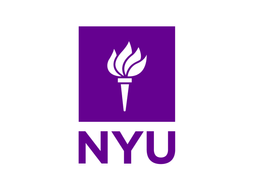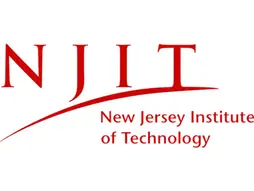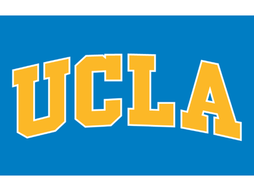13 Summer College Programs for High School Students
If you’re a high school student curious about what life at college looks like, consider a summer college program!
These programs provide a chance to dive into college-level academics, experience campus life, and gain practical skills—all without disrupting your school year.
Whether you’re interested in fields like medicine, engineering, or creative writing, these summer college programs for high school students offer the opportunity to learn more about subjects that you’re interested in and see what college life is really like.
We’ve done the research and selected 13 summer college programs that offer pretty solid experiences at prestigious universities.
The Summer@Brown program offers high school students like you the chance to explore college-level academics in a supportive, student-centered environment. With over 230 non-credit courses available, you can dive into subjects like engineering, biological sciences, arts, and political science. The interactive classes are designed to encourage independent thinking, group discussions, and hands-on learning.
Outside the classroom, you'll engage in workshops and activities that promote personal growth and community involvement. You’ll also receive a Digital Certificate of Completion, and students who attend courses lasting two weeks or more will receive a Course Performance Report.
Location: Brown University, Providence, Rhode Island
Cost: Tuition varies by course length; financial aid is available
Dates: June 16 – July 25 (Multiple courses with 1, 2, and 3-week on-campus and hybrid sessions)
Application Deadline: Currently accepting applications. Early application is encouraged
Eligibility: Open to students completing grades 9–12, aged 14–18 by June 15
The Residential Program provides an immersive campus experience with access to 70+ courses and New York City’s culture, while the Commuter Program caters to local students who attend classes and events off-campus. The Online Program allows students worldwide to join interactive virtual classes and workshops.
All programs feature courses covering subjects like writing, engineering, and the arts, while fostering critical thinking, collaboration, and independent learning. Participants receive a Columbia University Certification of Participation and performance evaluations, gaining valuable college prep skills.
Location: Columbia University, Morningside Campus (Residential & Commuter), or Online
Cost:
Residential: $12,750 per 3-week session (includes housing, dining, and fees)
Commuter: $6,300 per 3-week session; $2,825 per 1-week session
Online: $3,960 per 2-week session; $2,810 per 1-week session
Dates:
Residential/Commuter: June 30–July 18 (Session A); July 22–August 8 (Session B); August 11–August 15 (Session C for Commuter only)
Online: July 7–July 18 (Session A); July 21–August 1 (Session B); August 11–August 15 (Session C)
Application Deadline: Rolling; apply early for priority consideration
Eligibility: Open to students entering grades 9–12 (Residential: ages 16+ by program start)
The University of Southern California’s Summer Programs offer high school students like you the chance to explore your academic interests in a college setting. Over four weeks, you can earn college credits while studying subjects like architecture, business, engineering, performing arts, pre-health, and more. Each course is taught by USC faculty and professionals, featuring a mix of interactive lectures, hands-on workshops, and guest speaker sessions to create an engaging academic experience.
Location: University of Southern California, Los Angeles, California
Cost: Varies by course; refer to USC’s website for specific details
Dates: June 15 – July 12
Application Deadline: Rolling; early application recommended
Eligibility: Open to high school students; grade level and age requirements vary by course
The Johns Hopkins Pre-College Summer Programs offer academically advanced high school students the chance to experience college-level learning in a variety of subjects. Available in both on-campus and online formats, these programs cover fields like medicine, neuroscience, psychology, and STEM. You can choose one, two, or all three sessions, with each lasting two weeks.
On-campus participants take part in instructor-led lectures, guest speaker sessions, hands-on activities, and enjoy access to campus resources, as well as social and recreational events. Online students will benefit from flexible, self-paced learning with occasional live sessions and virtual community-building activities.
Location: Johns Hopkins Homewood Campus (Baltimore, MD) or Online
Cost: Tuition varies by program and format; refer to Johns Hopkins' website for specific details
Dates:
Session One: June 23 – July 2
Session Two: July 7 – July 17
Session Three: July 21 – July 31
Application Deadline: Rolling; early application is encouraged
Eligibility: Open to academically advanced high school students (specific requirements may vary by course)
Harvard Summer School offers two distinct pre-college programs for motivated high school students looking for an immersive academic experience. The Secondary School Program (SSP) lasts either 4 or 7 weeks, allowing you to take college-level, credit-bearing courses in residential, online, or commuter formats. With over 200 courses available, you can explore a variety of fields from humanities to STEM, earn college credit, and connect with peers from around the world.
This summer college program for high school students has a two-week residential option that focuses on non-credit, college-level courses in smaller, discussion-based classes. Students participate in co-curricular activities, workshops, and college readiness events while living on Harvard's historic Cambridge campus.
Location: Harvard University, Cambridge, MA (Residential, Online, and Commuter options)
Programs & Costs: Fees vary based on program length and format. Application fee of $75 (non-refundable)
Dates:
SSP: June 21 – Aug 9 (7-Week), July 13 – Aug 8 (4-Week)
Pre-College Program: Three sessions, June 22 – Aug 1
Deadlines: Early: Jan 8, Regular: Feb 12, Late: April 9 (or until full)
Eligibility:
SSP: High school students (Ages 16–18)
Pre-College: Rising juniors/seniors (Ages 16–18)
For more details, visit Harvard Summer Programs
Carnegie Mellon University offers a variety of Pre-College Programs for high school students looking for a challenging and immersive learning experience. Programs include specialized areas like AI Scholars, Computational Biology, Drama, and the National High School Game Academy, as well as interdisciplinary options like Writing & Culture and the Summer Session, which allows students to earn college credit.
Students participate in hands-on projects, collaborate with accomplished faculty, and explore cutting-edge fields through lectures, labs, and studio work. Some programs, such as SAMS (Summer Academy for Math & Science) and AI Scholars, are offered at no cost to participants, making them highly competitive.
Location: Carnegie Mellon University, Pittsburgh, PA (Residential, Commuter, and Online options)
Programs & Costs: Fees vary by program; some programs are free, others range from $7,038 to $13,792 for 6-week sessions based on the format. $50 application fee and $800 enrollment deposit. Full scholarships available for U.S. students on a need-basis.
Dates: Programs range from 3 to 6 weeks, starting late June to early August (specific dates vary by program)
Deadlines: Early Decision: Feb 1, Regular Decision: Mar 1, Scholarship Application: Mar 1
Eligibility: Students entering 11th or 12th grade with a minimum age of 16 by program start date.
The George Washington University Pre-College Program is one of the premier summer college programs for high school students, inviting you to explore subjects such as international relations, public health, biomedical engineering, psychology, and U.S. law in the vibrant setting of Washington, D.C. You will engage in academically rigorous, non-credit courses that combine lectures, interactive seminars, and visits to key institutions like embassies, government agencies, and museums. The program emphasizes experiential learning, connecting you with faculty and professionals to provide real-world context to your studies. Beyond academics, you'll take part in residential life activities, college readiness workshops, and recreational programs, ensuring a well-rounded pre-college experience.
Location: Washington, D.C.
Programs & Costs: Summer Immersion (2 weeks, Residential): $4,200; Caminos al Futuro: Fully funded; College Intensive (6 weeks, Online): Varies by credit.
Dates: Summer Immersion: June 23 – July 17; Caminos al Futuro: TBD.
Deadlines: Rolling, early application recommended.
Eligibility: Rising sophomores, juniors, and seniors for Summer Immersion; rising seniors for Caminos al Futuro.
Cornell University’s precollege programs introduce high school students to college academics and campus life. These summer college programs for high school students offer college-level coursework, develop critical thinking, and support college admissions preparation.
The Summer Residential Program lets you live on campus, earn credits through Cornell-taught courses, and join workshops, activities, and admissions counseling. The Summer Commuter Program is ideal for students near Ithaca, combining on-campus classes with the convenience of living at home. The Online Program offers flexible courses in fields like architecture, STEM, and business, available in live and self-paced formats.
Location: Ithaca, NY (Residential/Commuter) or Online.
Cost: Varies; financial aid available.
Dates:
Residential: June – August (3-6 weeks).
Commuter: Dates vary.
Online: Summer (3-6 weeks) and Winter (3 weeks).
Deadlines: May 5, May 19, June 16.
Eligibility:
Residential: Rising juniors/seniors (16-18).
Commuter: Juniors/seniors (16-19).
Online: Rising/current juniors/seniors (15-19).
Stanford offers rigorous summer programs for high school students in STEM, humanities, and mathematics. Options include the High School Summer College for college credits, Pre-Collegiate Studies for academic enrichment, the Stanford Mathematics Camp (SUMaC) for advanced math, and the Summer Humanities Institute for seminars in philosophy, history, and literature. Programs are available in both residential and online formats.
Location: Stanford University, Stanford, CA (Residential), or Online
Cost: Varies by program (ranges from $3,000 to $7,000); financial aid available for eligible students.
Dates: Program lengths vary from 3 to 9 weeks, typically running from late June to early August.
Application Deadline: Rolling admissions until May 1; some programs have earlier deadlines (e.g., March).
Eligibility: High-achieving high school students aged 16–19; rising juniors or seniors. Specific eligibility criteria may vary by program, including advanced coursework or demonstrated interest in the subject area.
COSMOS is a four-week summer residential pre-college program that offers California high school students like you the chance to delve into science, technology, engineering, and mathematics (STEM). Hosted at five University of California campuses—UC Davis, UC Irvine, UCLA, UC San Diego, and UC Santa Cruz—this program connects motivated students with distinguished faculty, researchers, and cutting-edge facilities to explore advanced STEM topics beyond the standard high school curriculum. Through hands-on, lab-intensive learning, COSMOS helps you deepen your understanding of STEM subjects while exploring potential career paths.
Location: Five University of California campuses (UC Davis, UC Irvine, UCLA, UC San Diego, and UC Santa Cruz).
Acceptance Rate/Cohort Size: Highly selective; each campus accommodates about 160–200 participants.
Cost: $5,256 (non-refundable), including housing, meals, and activities. Financial aid is available.
Dates: July 6 – August 1/2 (dates vary slightly by campus).
Application Deadline: February 7 (applications open on January 8).
Eligibility: California high school students in grades 9–12 with a GPA of 3.5 or above. Applicants must demonstrate academic excellence and reside on campus during the program.
The Honors Summer Math Camp (HSMC) is one of the premier summer college programs for high school students, hosted by Texas State University. This six-week residential program is designed for students with a strong passion for mathematics. It challenges you to delve into advanced mathematical concepts, conduct original research, and collaborate on problem-solving with peers who share your interests.
Led by university faculty, this summer college program offers returning high school students, opportunities to work on research projects that have earned recognition in prestigious competitions such as the Siemens Competition and the Intel International Science and Engineering Fair.
Location: Texas State University, San Marcos, TX (Residential Program)
Cost: $6,600 (includes tuition, room, board, and program management); financial aid is available based on demonstrated need
Dates: June 15 – July 26
Application Deadline:
General deadline: April 15
Priority deadline for returning students: February 15
Early application encouraged as the program often fills before the deadline.
Eligibility: Open to high school students in grades 9–12 who have a strong interest in mathematics; a teacher recommendation may be required for your application
The MITES Summer Program, hosted by the Massachusetts Institute of Technology (MIT), is a six-week residential program designed for high school juniors with a strong passion for STEM (science, technology, engineering, and mathematics). This rigorous program immerses you in MIT's dynamic academic environment, where you will take five courses, including advanced math, physics, life sciences, humanities, and project-based electives. Alongside challenging coursework, you will gain valuable insights into STEM careers and college preparation.
Location: Massachusetts Institute of Technology, Cambridge, MA
Acceptance Rate/Cohort Size: Highly competitive, with a focus on underrepresented and underserved students in STEM.
Cost: Free. All program costs, including room and board, are covered. Students are only responsible for transportation to and from MIT.
Dates: Late June – Early August (6 weeks).
Application Deadline: Fall semester of the junior year (specific dates announced annually).
Eligibility: Open to high school juniors who are U.S. citizens or permanent residents.
The NC State Design Camp, hosted by the College of Design at North Carolina State University, offers high school students like you the chance to explore design through immersive, hands-on experiences. This residential program introduces you to university-level design disciplines, including architecture, graphic design, industrial design, and media arts. You will work on studio projects, develop critical thinking skills, and tackle creative problem-solving exercises while gaining insight into college-level academics and career opportunities in design. Participants also experience campus life, staying in university housing and engaging in evening activities that deepen their understanding of design and enhance their creative skills.
Location: Raleigh, NC
Programs & Cost:
The High School Explorations Camp costs $1,500, while the Design Immersions Program costs $1,550. Financial aid is available.
Dates: Vary from cohort to cohort
Deadlines: Vary from cohort to cohort
Eligibility: Varies from cohort to cohort
One other option—the Lumiere Research Scholar Program
If you’re interested in pursuing independent research, consider applying to one of the Lumiere Research Scholar Programs, selective online high school programs for students founded with researchers at Harvard and Oxford. Last year, we had over 4,000 students apply for 500 spots in the program! You can find the application form here.
Also check out the Lumiere Research Inclusion Foundation, a non-profit research program for talented, low-income students. Last year, we had 150 students on full need-based financial aid!
Stephen is one of the founders of Lumiere and a Harvard College graduate. He founded Lumiere as a PhD student at Harvard Business School. Lumiere is a selective research program where students work 1-1 with a research mentor to develop an independent research paper.











